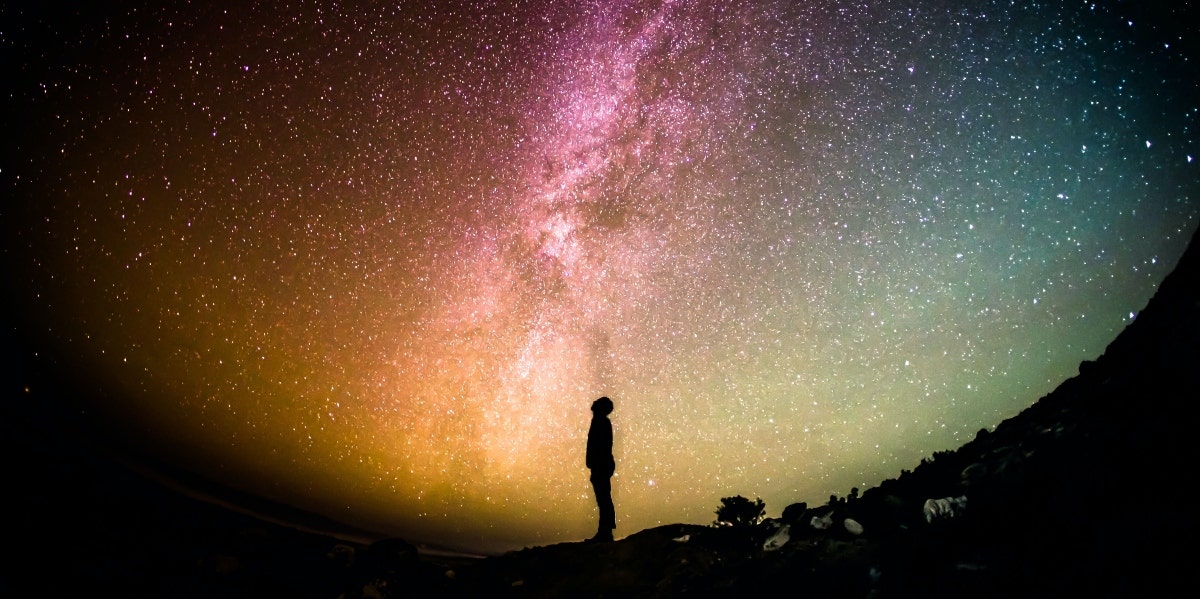Scientists Insist The Earth Has A 'Heartbeat' — And Its Irregularities May Be Increasing All Of Our Anxiety
The lightning strikes that may be messing with your blood pressure.
 Greg Rakozy / Shutterstock
Greg Rakozy / Shutterstock We may have sent humans to the moon but we’re still not finished exploring everything our home planet has to offer us.
One of the great mysteries scientists have stumbled across is whether or not the Earth’s “heartbeat” plays a role in human health and activities.
This heartbeat is produced from flashes of lightning that strike the Earth roughly 50 times every second, producing low-frequency electromagnetic waves all around the planet’s atmosphere.
These waves or heartbeats are known to scientists as Schumann Resonances, named after Winfried Otto Schumann, the German physicist who first studied the phenomenon back in the 1950s.
The beat created from these resonances has been used to study the planet's electromagnetics, weather, and seasons, but it also has some links to human behavior.
The Earth’s “heartbeat” could be messing with yours
Scientists have been studying the human impact of Earth’s frequencies for some time now, and while it’s hard to prove the specifics, some interesting connections have been made.
A 2006 study found that the Schumann Resonances correspond to certain brain waves in real-time.
A decade later, another study examined 184 individuals over a period of three and a half years to measure a similar link.
The study concluded that there were a lot of "unexpected similarities in the spectral patterns and strengths of electromagnetic fields generated by the human brain and the earth-ionospheric cavity."
In layman’s terms, that means that Earth’s heartbeat has possible links to brain activity.
Other studies have found that the impacts of these resonances may be tied to blood pressure and play a role in the activity of our nervous systems.
Climate change strengthens Earth’s “heartbeat” — but not in a good way
Some research suggests the Schumann Resonances could act as a thermometer to measure global temperatures.
Lightning flashes are created by increased temperatures and consequently increase Schumann Resonances.
One study revealed that, because of increased carbon emissions, the Earth’s “heartbeat” and the differences between the seasons are becoming increasingly apparent.
Schumann Resonances could happen at increased frequency as climate change progresses. This could deepen the impacts of the resonances on human health while the effects of climate change take hold.
So, how does the Earth's "heartbeat" impact human emotions?
While research into the specific impacts of Schumann Resonances on human emotions is limited, we can draw some conclusions from what we know thus far.
Stress and anxiety can produce short-term spike in blood pressure which we already know Schumann Resonaces play a role in also. So it is possible that Earth's strengthening heartbeat is increasing global anxiety levels.
Given that these resonances do have links to our nervous systems, lightening flashes could also be toying with how our body processes and produces emotions.
When the nervous system is overstimulated, increased feelings of fear and anxiety can be produced. Hence, as Schumann Resonances become stronger and more impactful, this emotional activity could too.
If Earth’s resonances influence us, can we influence the Earth’s resonances?
Some supporters of “new age science” have come to believe that this relationship between Earth and humans could work both ways.
Under this logic, a sudden and drastic increase of global stress and anxiety caused by an international crisis — a pandemic, for example — could change the Earth's heartbeat.
However, there has not yet been any evidence to support this claim.
This is also a bit of a chicken and egg situation where it's impossible to conclude which cyclical effect began first. If we know that the Schumann Resonances can spike blood pressure or impact nervous systems, couldn’t they be the cause of global anxiety rather than the other way around?
Alice Kelly is a writer living in Brooklyn, New York. Catch her covering all things social justice, news, and entertainment.

